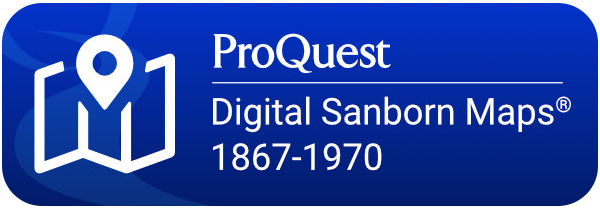
Sanborn Maps, 1867-1970 (Digital)
Digital Sanborn Maps (1867-1970) for North Carolina provides digital access to 816 large-scale maps of 158 North Carolina towns and cities, including Asheville, Charlotte, Durham, Raleigh, Winston-Salem and many others.
Sanborn Fire Insurance Maps are the most frequently consulted maps in public and academic libraries. Founded in 1867 by D. A. Sanborn, the Sanborn Map Company was the primary American publisher of fire insurance maps for nearly 100 years. The maps were originally compiled to help insurers assess the value of property, identify risk factors, and underwrite losses. These maps contain detailed data such as building outlines, size, use, construction details, and function of structures. They also give street names, street and sidewalk widths, property boundaries, house and block numbers, and other features like pipelines, railroads, wells and dumps. Historians, urban planners, architects, environmentalists, geographers, genealogists, and others will find the maps a valuable tool for exploring the grid of everyday life in the United States across a century of change.








